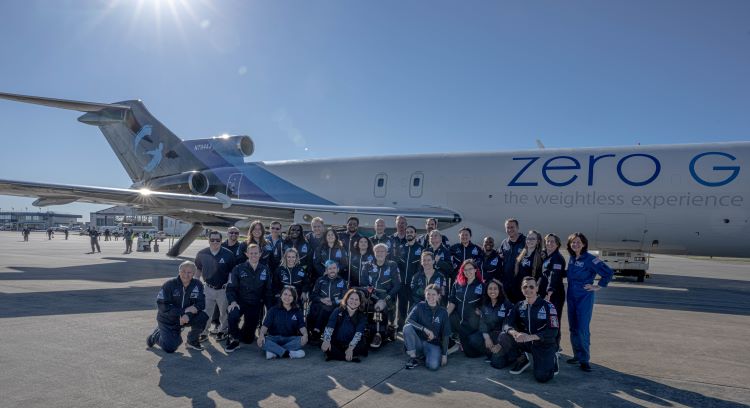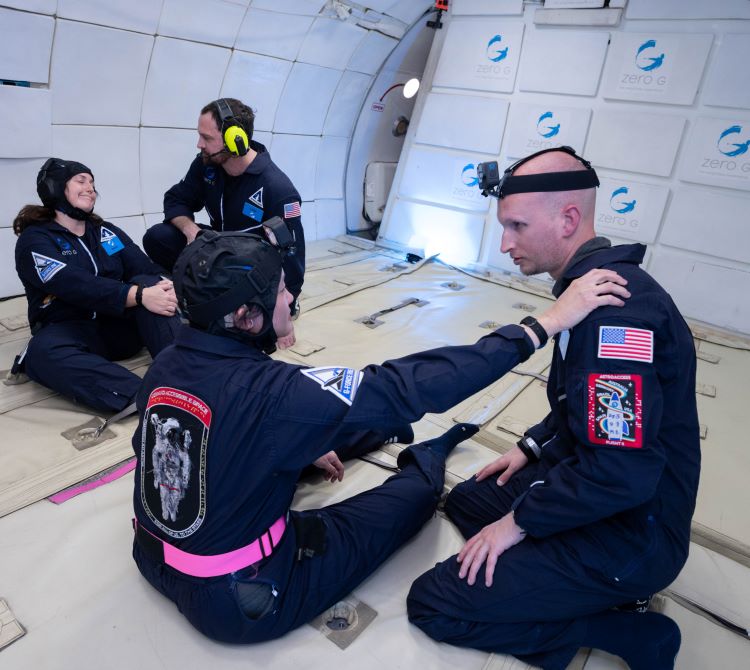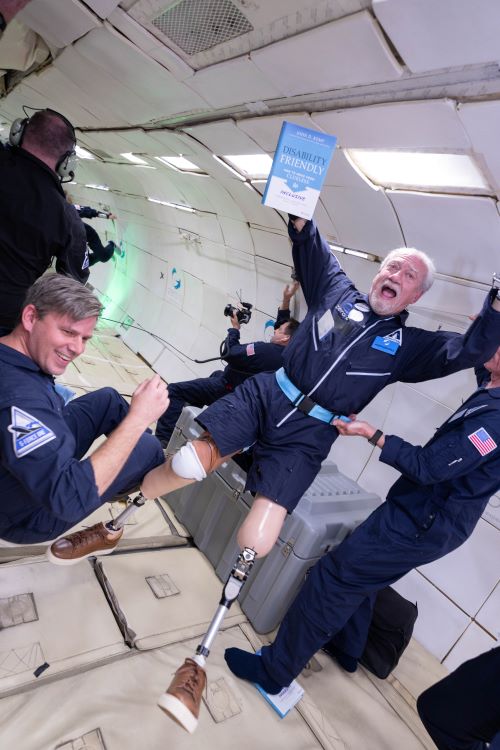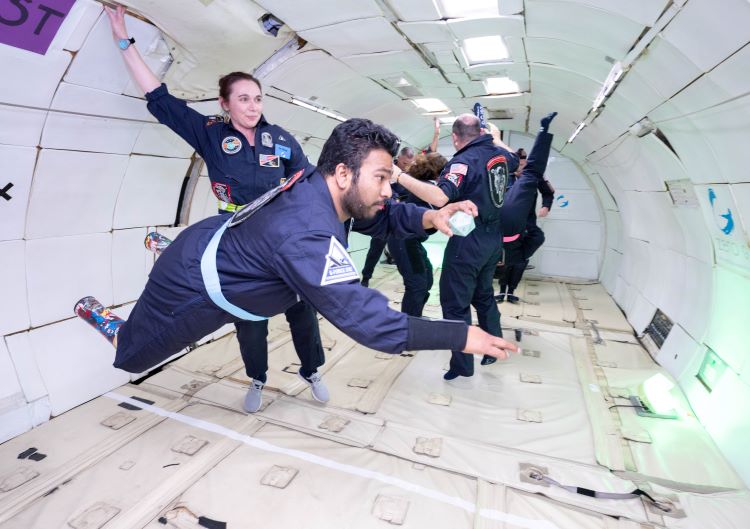Ever since Eric Shear was a child, he has looked up to the sky, watching the stars and wondering “what’s out there.”
With a curious brain wired for space exploration and degrees in physics, planetary science and, as of Friday, a master’s degree in chemical engineering from the University of Florida, it seems natural that Shear pursues his lifelong dream to travel into space.
There’s only one problem. Shear was born profoundly deaf, meaning he can only hear random sounds — like a dog’s loud bark or a jet engine — that are at least 80 decibels, and that bars him from flying to space with NASA or any other space agency, for now.
“My ultimate goal is to be an astronaut,” Shear said, “but if I can’t journey into space, I want to be involved from the ground and develop life-support technologies that assist those who do fly.”
This week, Shear has taken two giant steps toward both these goals when on Thursday he experienced weightlessness on a parabolic flight with AstroAccess, which is intended to test how people with disabilities fare in a zero-gravity conditions and find ways to accommodate them during space travel. He returned to Gainesville the next day, just in time to graduate from the Herbert Wertheim College of Engineering’s master’s program.
“It’s going to be an exciting week with little time between the AstroAccess flight and graduation,” Shear said before he left for the Dec. 14 parabolic flight, which was delayed to the next day due to weather. “I’ll be relieved when all the work is done, and I can enjoy my accomplishments.”
The zero-gravity flight is Shear’s third, and his second with AstroAccess, a nonprofit organization dedicated to promoting disability inclusion in space exploration. As ambassadors selected from a pool of applicants, Shear and his 15 crewmates share a passion for space travel and include engineers, scientists, physicians, graduate students and other specialists with varying disabilities. They will experience weightlessness as they fly within Earth’s atmosphere in alternating upward and downward arcs in repeated short bursts while also conducting experiments.
The flight, operated by Zero-G Corporation onboard a Boeing 727, will take off from Houston with the crew laying on mats flat on their backs as the plane begins a fast, steep climb.
“You feel so heavy — twice your weight as the acceleration pushes you into the floor, and then there’s a gradual release,” Shear explained. “The weight is lifted, and you come off the floor, spin around and backwards. Gravity means nothing. It’s complete freedom.”
Shear and his fellow deaf crewmembers will experiment with communicating through American Sign Language, or ASL, in the chaotic environment of freefall. They prepared by practicing in a swimming pool earlier this year to see how well they could understand each other in different orientations.
“We understood each other perfectly even though in the pool, we used scuba gear that obscured part of our faces. On the plane, we will do this with our faces uncovered, which is important because in pure ASL, facial expressions can change the meaning of a sentence. A statement can turn into a question just by raising your eyebrows.
“Despite these small nuances, we’re showing that deafness does not necessarily limit communications when inside a habitat like a plane’s cabin,” he said. “In fact, deaf people may communicate better than people who can hear as long as we have a line of sight.”
If all goes as AstroAccess intends, one of its ambassadors will fly in space in the years ahead. And with numerous private companies now in the spaceflight mix, it’s not hard to imagine. The organization says now is the time to consider accessibility issues as a more diverse pool of people are likely to make trips to the edge of space.
“Right now, NASA is not hiring deaf astronauts, but that could change with my participation in AstroAccess,” Shear said. “I hope this helps break down barriers to space exploration as much as possible. We can make it accessible. We can make anything accessible.”
With his third gravity-free flight experience behind him, Shear joins 4,400 other graduating Gators in celebrating commencement this weekend, and whether he continues his education at UF to earn a doctorate degree or enters the workforce in the space industry, he can look to the sky and know his limits are boundless.
Photos by Zero G photographer Tasha Dixon

The crew members of the AstroAccess disabled research flight on the tarmac before taking off.

Victoria Garcia, Dr. Luke Brane (support crew), Sheila Xu, and Eric Shear test light signaling devices to indicate changes in gravity through a non-auditory system.

John Kemp, a renowned disability advocate and the co-founder of the American Association of People with Disabilities (AAPD), floats with four prosthetic limbs outreached.

Dwayne Fernandes, an Australian entrepreneur, maneuvers in zero-gravity to investigate navigation techniques for future space vehicles and space stations.